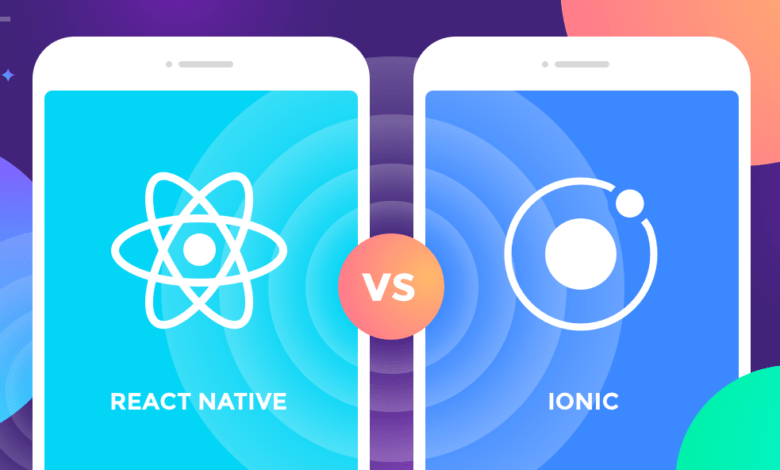React Native vs Ionic: Which One of Cross-Platform App Development Frameworks Is Better?

In an era where most transactions have shifted online, app development has gained unprecedented importance. Apps provide an interface through which different sets of users can interact without the need for geographical proximity.
Everything You Need to Know About React Native and Ionic App Development Frameworks
However, with iOS, Android, Windows mobile and a variety of other operating systems offering multi-functional native platforms, it has become vital to develop apps which can work efficiently on all of these systems. This is why cross-platform app development is quite literally the need of the hour.
But, when you get down to the actual process of app building, you are required to choose a framework which can help you host your app on a plethora of different platforms in a seamless and effective way. Usually, this is narrowed down to two options, React Native and Ionic.
Here are a few things you need to know about both of these frameworks before you decide to pick one.
What Is Ionic Framework?
Ionic is basically an open source framework which can be used to build hybrid mobile applications. Its primary features include:
- It uses HTML- 5 as a programming language.
- It can as easily work with CSS as it can with Angular JS.
- It is platform independent.
- On iOS, it works with UI-Web View while on Android, it simply works on web view.
- It utilizes both, Phone-Gap and Cordova frames.
What Is React Native Framework?
The React Native framework is also an open source platform which is developed and maintained by leading corporations like Instagram, Facebook, and Skype. Its features are:
- It uses JavaScript as a programming language.
- It is managed by a strong community of developers.
- It uses JSX as a code language. Being a syntax extension that optimizes and compiles the code, it can further be reused.
- The React Native mobile apps are platform independent.
- It uses the native UI without using either HTML or web view.
Nevertheless, whether you decide to undertake a React Native development or employ an Ionic framework, you need to be sure of the advantages they have to offer.
Here are a few facts which will enable you to make a comparison between the two:
React Native Vs Ionic
- Ionic uses web technologies for better portability while React Native utilizes a functional user interface.
- Ionic comes with pre-styled and pre-developed components, but the React Native framework is not pre-styled. This facilitates ease of learning as components can be developed on the go.
- React Native mobile apps offer the benefit of code re-usability across different platforms which makes these apps speedier to develop and deliver. With Ionic, on the other hand, the code can only be re-used in a limited way.
- The code performance of React Native is excellent as it does not use web view. The code performance of Ionic, however, is constrained due to the restrictions of security and functionality posed by web view.
- Ionic uses Apache Cordova to enable phone hardware accessibility while React Native is in itself capable enough to provide such access.
- Last but not least, the community support which promotes React Native development is much stronger than the community support of Ionic. This makes React Native more responsive, flexible, and adaptable to change.
Which One Should You Choose?
If you are unsure about which framework to use for effortless cross-platform app development, CS Web Solutions can offer you specialized assistance. Their designing and marketing services coupled with an extensive resource base can help you make the best possible choice.
Regardless of which framework you choose, app development will require both, skill and innovation. Thereby, it is vital to ensure that your project and your user requirements are in sync with your final objective. Only then will you be able to determine which framework suits your needs better – React Native or Ionic.






